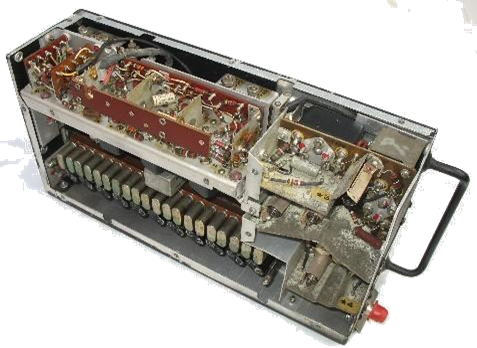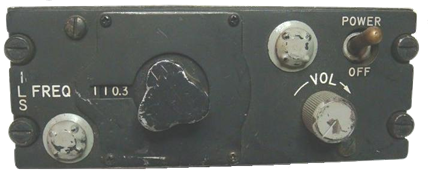








|
VINTAGE AVIONICS |
|
Instrument landing SYSTEMS |
|
Indications from the AN/ARN.31 are displayed on the course indicator and give both localizer and glide-slope guidance to a pilot making an instrument landing. Both localizer and glide.slope operate on 20 fixed frequency channels. The Localizer frequencies range from 108.1 to 111.9 MHz and the glide.slope from 329.3 to 335.0 MHz. The glide.slope frequency is paired with the localizer frequency and selected on the control panel.
ARN-31 system The ARN-31 receiver set dates from 1956, using subminiature tubes and some early germanium diodes. The system has two receiver boxes and a common power supply. The receivers differ only in the frequency band.
R-625/ARN31 Localizer Receiver 108.1 -111.9 MHz in 100kHz steps (!) R-626/ARN31 GlideSlope Receiver 329.3 -335.0 MHz in 300kHz steps PP- 2792/ARN Power supply C– 1464 / ARN Nav set control ID250/ARN LOC /GS course deviation indicator
General The R-626 / ARN-31 receiver is a single conversion superhet, with four IF stages at 18.9MHz. The bandwidth is approx. 140kHz (-6dB) or 200kHz ( -30dB), adequate for the 300kHz channel spacing as used in 1957. Nowadays, the spacing is 150kHz to accommodate 40 channels and these receivers are obsolete.Circuit diagram with some background is hereThe C-1464/ARN31 ILS control panel controls both the Localizer and Glide slope receivers with a single, 20-position knob. |
Glide Slope ReceiverR-626 / ARN-31 |